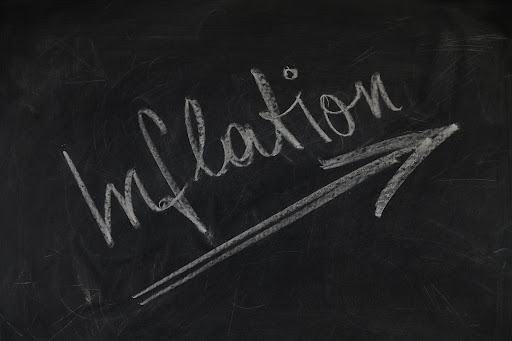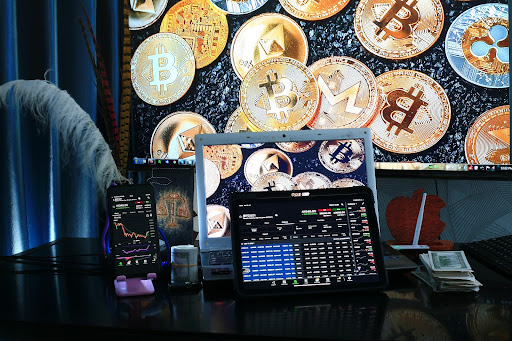
Inflation has impacted everyone but the younger generations will likely continue to see the effects of rising inflation for years to come. Rising inflation has an insidious effect: input prices are higher, consumers can purchase fewer goods, revenues and profits decline, and the economy slows for a time until a measure of economic equilibrium is reached. For millennials, rising inflation is the fourth financial crisis of their lives.They’ve experienced the dot com bubble burst as kids, the Great Recession as 20-somethings, the COVID-19 fueled the economic crisis and now rapid inflation. Gen Z experienced the last two of those four. Commodity prices have already gone up sharply around the world and many other prices seem to be headed the same direction. To fight COVID-19 many governments printed huge quantities of new money and many economists are predicting the result will be a sharp rise in inflation. For those sectors of the economy which suffer badly from inflation there will inevitably be significant increases in unemployment, which is likely to hit the younger generations hardest. What types of things will be affected by inflation?
Housing During Inflation
Millennials and Gen Z are impacted by housing costs. Both generations are much more likely to rent than own homes which means they’re much more vulnerable to a sudden rent increase. “Gen Z has been hit harder by the financial effects of the COVID-19 pandemic than older generations,” said Andrew Latham, managing editor of SuperMoney. “Seven out of 10 have had to make adjustments due to pandemic-related financial strain. They face crushing student debt, entered the workplace during a global pandemic-induced recession and shouldered the largest financial vulnerability increase. In addition, Gen Z members were more likely to borrow money and move to more affordable housing because of the pandemic than any other generation.

According to a report from PropertyShark, ”Because of student loans and high down payments, many young people who aspire to own their own place have been locked into the rental market far longer than previous generations. This, in turn, has been pushing rental rates to the highest they’ve ever been a boon for multifamily investors, but that rent burden coupled with college debt continues to keep many from saving enough for a down payment.” Even if the younger generations are able to buy a house, household goods like furniture cost up to 12% more.
Everyday Needs and Wages During inflation
Millennials and Gen Z spend more monthly on gas than any other age group and gasoline is 50% more expensive right now. Gen Z is the generation most likely to use the laundromat, where costs have risen more than 7%. Even groceries are up 5% and expected to rise to 8% before the year is out. On the wage front, the younger generations will need to negotiate wage increases that match inflation which is hard to do for a number of reasons: an oversupply of workers; if their jobs can be automated; or if there is increased pressure on wages through increased immigration.
Investing during Inflation
Stocks come in two categories: value and growth. Value stocks have strong current cash flows that will slow over time, while growth stocks have little or no cash flow today but are expected to gradually increase over time. When valuing stocks using the discounted cash flow method, in times of rising interest rates, growth stocks are negatively impacted far more than value stocks. Since interest rates are usually increased to combat high inflation, in times of high inflation, growth stocks will be more negatively impacted. This suggests a positive correlation between inflation and the return on value stocks and a negative one for growth stocks.

For Adam Mlamali, a 20 year old stock trader, inflation is something he “constantly” studies to monitor and make decisions over his investments. “You need to be realistic with budgeting, spending, saving and even potentially investing,” he said. Adam, who moved to Birmingham to buy his first property, said a food delivery service, which he made a large investment in, was experiencing surging operating costs. “One of the alarming risks facing the company was the fact that due to inflation across the entire food delivery industry, drivers are being paid out 15% more per hour, leading to increased costs potentially affecting our returns,” he added. Right now there’s a big talk with certain investors and investment funds whether, is inflation transitory? Is it just a period that is going to end? Or is this actually here to stay?” Adam said certain investment vehicles “aren’t really performing now” as they were in the last few years due to rising costs.
If the job crisis continues and inflation keeps increasing, the effects will fall disproportionately on the shoulders of younger generations. Inflation is also particularly insidious for young people who want to have more say in our democracy because, as Milton Friedman said, “inflation is taxation without representation.” Even though increasing inflation can be scary, there are ways the younger generations can fight inflation: making ambitious demands for higher wages early and often; avoiding leaving cash in current accounts; and thinking of everything in terms of its replacement cost rather than its historic cost.
Written by: Erinn Malloy

